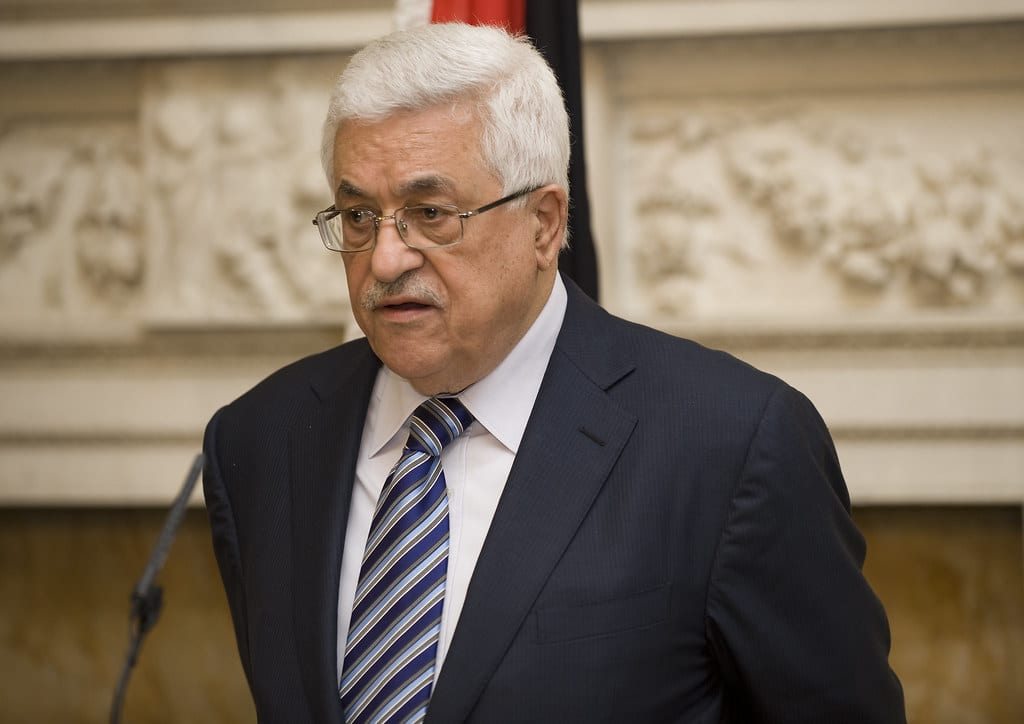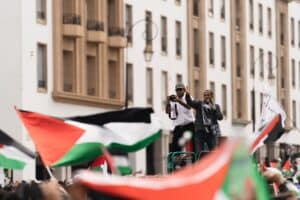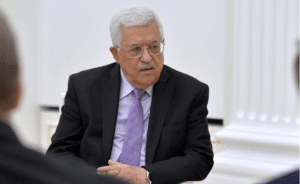The long-awaited Palestine elections have been delayed by President Mahmoud Abbas on April 29 after all. Abbas declared that it was necessary for elections to be able to take place in all the Palestine territories, including East-Jerusalem. He suggests that Israel would not allow Palestinians to vote in Israeli-occupied East-Jerusalem. As Abbas is under threat from both within and outside his own Fatah party, the elections scheduled for May 22 could have meant an end to his 16-year long rule. This is widely considered to be the main reason behind the delay, as opposition forces cry foul and minor protests have erupted. The by the United States (US) and European Union (EU) declared terrorist group, Hamas was expected to increase its share of power. As such, the US have not been too concerned with the election delay.
Delay of elections unsurprising given history
The announcement of parliamentary and presidential elections, after the reconciliation talks between the two Palestinian rival factions, Fatah and Hamas, came as a surprise. In October 2020 the parties agreed to hold elections and in February decided on the “mechanisms”. The rival movement have struggled for power since many year. President Abbas and his Fatah movement took control of the Palestine territories in 2005. The following elections, which took place in 2006, saw a decisive Hamas win. Given its loss, Fatah denounced the elections, after which a brief civil war erupted. Hamas has been in control of the Gaza Strip since 2007, with the Fatah controlled emergency government controlling the West-Bank territories.
There have been no elections since then, despite many negotiations between Fatah and Hamas. As the Islamist Hamas movement refused to denounce violence in its ongoing struggle against Israel and refuses to recognize the state of Israel, its conflict with the secular and more moderate Fatah movement continues. They have repeatedly failed to live up to their promises of reconciliation. It came as no surprise, that the parliamentary elections were delayed, just as the election campaign was about to start. It was not immediately clear whether presidential elections were postponed too, but they cannot take place unless the “East-Jerusalem voter issue” is resolved. Hamas immediately declared the delay a “coup”.
East Jerusalem issue as reason to postpone the elections
The declaration of Abbas to postpone the elections came shortly after Israel failed to respond to the question whether Palestinians in East-Jerusalem could vote in the elections, something which was agreed upon in the 1993 Oslo accords. In 2006 it had allowed Palestinians to vote in post offices. Its foreign office stated that the elections were “an internal Palestinian issue and that Israel has no intention of intervening in them or preventing them”. However, Israel has banned all Palestinian political activity, also in its “undivided capital” Jerusalem. For instance, it recently arrested a Fatah party member who was campaigning in East-Jerusalem. Israel argued it could not comment on the East-Jerusalem issue, as the country is without a government.
Even though Israel never literally stated it was going to oppose it, Abbas saw there was enough reason to believe Palestinians in East-Jerusalem would not be able to vote when it came to it. This was one of the preconditions for the elections, which Fatah and Hamas agreed upon in October 2020. All Palestinians in the West Bank, the Gaza Strip, East-Jerusalem and the diaspora needed to participate for the election to continue. Already then, the likelihood of Israel officially accepting Palestinians to participate seemed low, which arose many question whether the elections could take place. The sceptics have proven to be right when Abbas summoned other political factions and “indefinitely postponed” the elections, blaming it on Israel.
Weak international response can be interpreted as sign of relief
With the more moderate Abbas expected to lose in the upcoming elections and the more radical Hamas expected to increase its influence, the EU, US and others in the Middle-East were cautiously monitoring the situation. The international community would be hesitant to welcome Palestinian territories which would be largely led by Hamas, blacklisted as a terrorist organization by the US and EU. Hamas has signaled its more modest ambitions for the 2021 elections, hinting it was willing to share power with Fatah and not seek posts of prime minister and foreign affairs minister, which could trigger international upheaval. However, the US and EU might secretly be quite content not having to “take the risk”. What the consequences of strengthening Palestinian capacity and agency with the election are, remain uncertain.
Even though the EU’s High Representative Josep Borrell declared that it was “deeply disappointing” that the elections were delayed, no other actions followed. Borrell merely stated that the EU “strongly encourages” to resume efforts to hold elections and “calls on” Israel to allow Palestinian in East-Jerusalem to vote. Similar statements were released by the Egyptian and Jordan authorities. Only recently the US, under the new Biden-administration, has started to improve ties with the Palestine territories again. It is not coincidence that the planning of elections overlaps with the ousting of the Trump-administration. Yet, the US completely distanced itself from the Palestine polls, simply stating that “the exercise of democratic elections is a matter for the Palestinian people and for the Palestinian leadership to determine”.
Rift within unpopular Abbas’ Fatah as main reason for election delay
Those who have taken to the streets after the elections were delayed claim that President Abbas only postponed the elections because he was likely to lose. Hamas is better organized than Fatah and Abbas is allegedly “buying time”. Recently, internal divisions surfaced in the Fatah party when two of Abbas’ rivals announced their own lists of candidates. Jailed Fatah leader Marwan Barghouti and Nasser al-Qudwa, nephew of the party’s founder Yasser Arafat, are expected to draw many votes away from Abba’s Fatah party. Director of the Palestinian Centre for Policy and Survey Research, Khalil Shikaki, even said that Barghouti would win if he runs for president. Only if Fatah and Hamas would combine their strength, could they beat him.
Other polls are less favorable for Barghouti, but what is certain, is that the Fatah movement will need to hand over much of its power. The 85-year old President Abbas is unpopular and seen by many Palestinians as corrupt. Two third of voters are dissatisfied with him after 15 years without an election. Especially the “forgotten generation” of young people who have never voted, call for new – non Fatah and Hamas – faces. The old ruling class was elected in a time when Facebook was not even released worldwide. The move to postpone the elections will only have decreased Abbas’ approval ratings, as over 75% of the potential voters were in favor of holding elections. Protesters in the West Bank and Gaza Strip declared that there is always a good reason for Abbas to postpone elections, because the expected results do not favor him.
Political conflict continues as political forces oppose election delay
Virtually all of the candidates and parties that would participate in the May 22 elections, have criticized the decision of Abbas to postpone the elections. Hamas went so far as declaring “a coup” had taken place. Though the claim seems absurd, there might be some truth to it. With Abbas’ decreasing popularity, it seems ever more unlikely that parliamentary elections will actually take place under his rule. With an expected loss during the presidential and parliamentary elections, the downsides continue to outweigh the upsides of elections. This is the case even though it might improve the Palestinian position in its conflict with Israel, the reason why Israel was unwilling to comment on the East-Jerusalem issue.
The postponement of the elections is expected to be a major setback in the Palestine relation vis-a-vis Israel. The anti-Abbas election candidate, Nadia Harhash, argued that delaying the elections over the East-Jerusalem issue gives Israel a de facto veto power over the Palestinian right to vote. In essence, it is a surrender to Israeli occupation. A recently elected government, which would be more influenced by hardliners from both Hamas and Fatah’s splinter factions, could have held a stronger position in the Israeli-Palestinian dispute. However, it seems though as it is exactly this that most international actors wish to evade for the sake of stability. What will happen within the Palestinian territories themselves remains to be seen during these “unstable times” marked by COVID-19, economic downturn, uncertainty and frustrations.
Image: Flickr (President Mahmoud Abbas)
Sources: Aljazeera1, Aljazeera2, AP, BBC, Carnegie, CrisisGroup, DW, ForeignPolicy, Memo1, Memo2, Memo3, Reuters1, Reuters2 ToI1, ToI2



